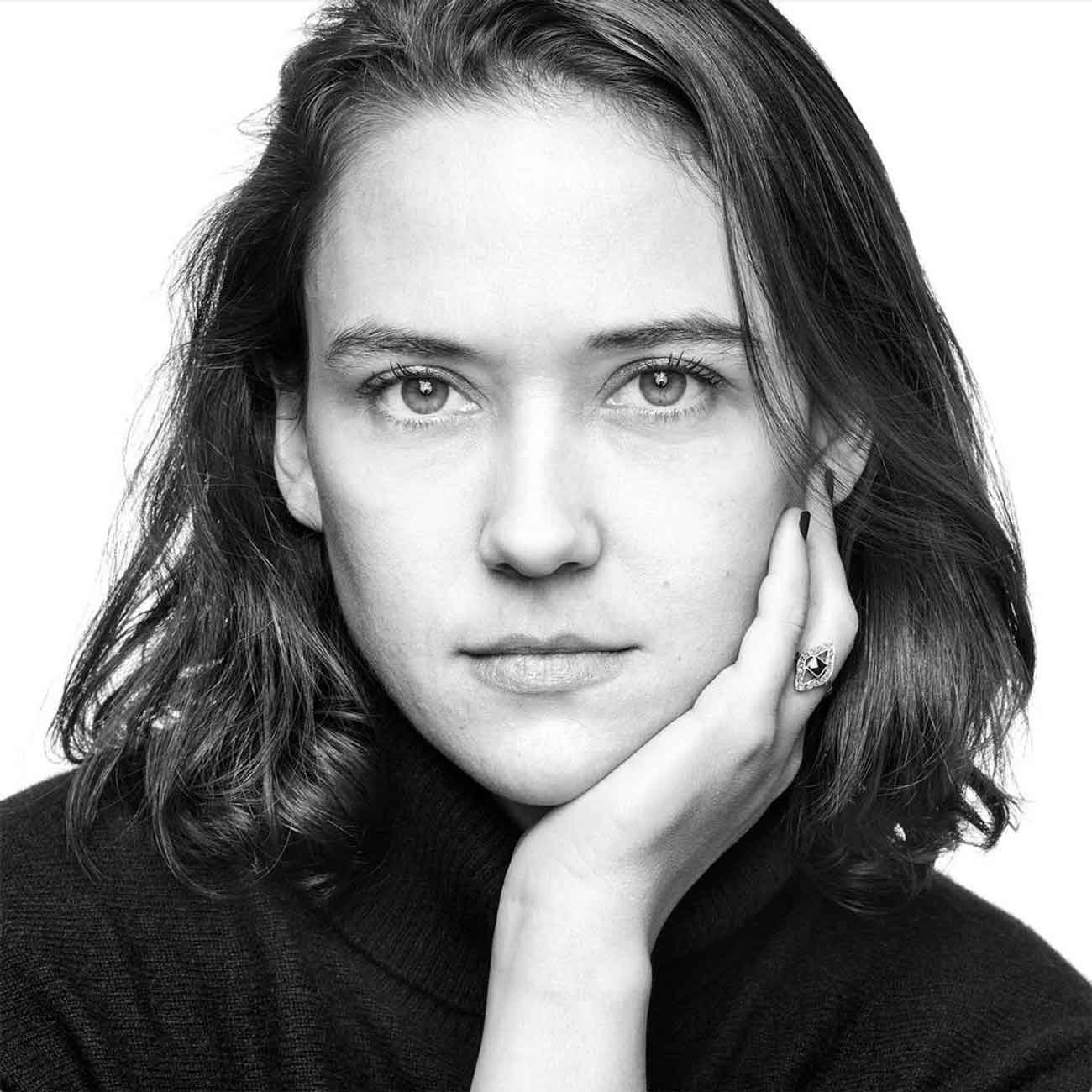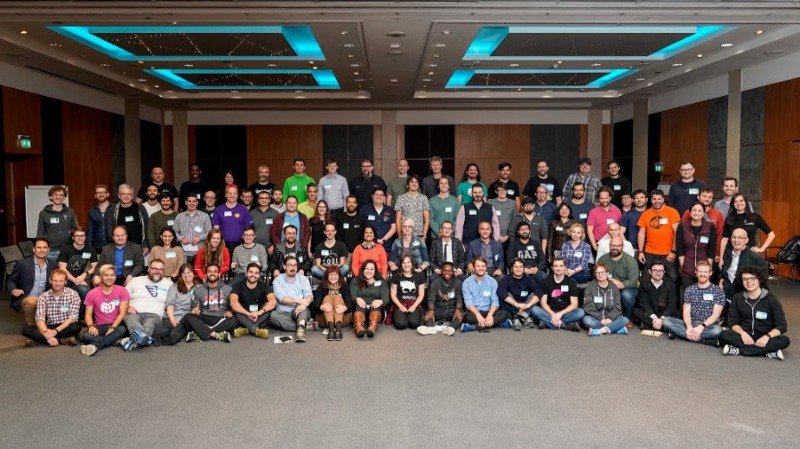Pia Mancini is a democracy activist, political scientist, open source sustainer, co-founder & CEO at Open Collective and Chair of DemocracyEarth Foundation. She has worked in politics in Argentina as the Chief of Advisers and Deputy Secretary of Political Affairs, Government of the City of Buenos Aires and CIPPEC think tank. She has developed technology for democracy around the world and is a YC Alum, Young Global Leaders (World Economic Forum). She co-founded DemocracyOS & The Net Party (Partido de la Red).
THE CREATIVE PROCESS
Do you think that there's anything that we can do to get democracy back on track? Is there anything we can do as young people? What needs to happen for democracy to get to the best that it can be?
PIA MANCINI
Even if the current system sucks, we still need to vote. That for me is something that I keep repeating. We cannot leave vacuums in the political system because someone else is going to fill them. So that for me is the number one thing. We change everything we want and work on change, but we need to make sure that the right people are voting or otherwise, it's going to be a lot harder. So we need to play both games, I guess. And then I think that we've had time to experience and experiment with these institutions for hundreds of years. And whenever we propose something new, there is this expectation that completely replaces what exists. And it always gets compared like, "Oh, but this happened, but..." We need to experiment. We need to be honest about this, and we need to say like, we don't know if we have unintended consequences. Like what I was saying before about our use of social media, we missed it. And so I think that we can, at the grassroots level, do a lot of experimentation and organizing kind of collectives that self-govern in different ways and use different tools and really experiment with what happens at a human level when certain technologies are used, when certain governance structures are used. So I think that's the game we will all need to play.
It's twofold. On the one hand, we need to build a new system. And that makes the existing system obsolete. And we need to do this by finding sandboxes of political innovation and experimenting with political structures ourselves, but at the same time, we need to keep the pressure on the existing system to make sure that it doesn't go to hell. So it's these two things, that's our generational challenge.
THE CREATIVE PROCESS
You've been politically engaged from the time you were a child, which is so refreshing to hear. There's a lot of disengagement now. What was it like for you as a young woman with bold ideas on democracy and ineffective government and just wanting to bring about change. What were the challenges you faced, and how do you address them?
MANCINI
Well, I think I face the same challenges that any man or woman would face in terms of trying to change an existing system. So there's a whole set of challenges that I think are common to everyone who's trying to disrupt the status quo and at the same time needs to engage with the status quo because we do live in a society where we play by certain rules and it is what it is.
And so I think many of those challenges have to do with the nature of power and how power is conservative and power will do anything in order to stay in power. And the status quo will do anything and make itself look like anything that you want in order to stay in power. And they might change their spots a little bit here or there, but if you look deep enough, it's the same people. It's the same power.
And so for me, that was the big challenge of realizing that we were facing power and power is conservative, and that's not the way to really achieve the change that we wanted to make. I wasn't patient enough for incremental changes. That's not what I'm interested in. So there's one set of challenges that I think is common to anyone in my position trying to do this. With regards to being a young woman, I mean, sure you face the same kind of sexist comments that you would face anywhere else that I face now as a woman CEO. The best thing I can do for that is just occupying the space and keep occupying the space and refusing to move away or let things like that stop me from engaging.
THE CREATIVE PROCESS
You’ve talked about the lack of engagement. On the one hand, we have this huge fracturing of trust in the different political parties which are largely polarized. So whatever progress is achieved by one party, they're so gridlocked. If they can even achieve progress, then it's rolled back by the other party, depending on which country you're in. Even the transformation of journalism. Newspapers used to be more neutral, more nuanced, but now news is a kind of an arena of entertainment, and we get more clicks based on anger. It seems to motivate people and to keep people on these channels, so it creates this fractioning of trust. We should have more transparency because of these tools. They would allow us to have greater feedback loops and add nuance to the level of feedback and data that you can get even on Twitter. So how do we use these technologies, which I know that you have with the DemocracyOS. How do we take advantage of the best of these technologies without giving way to the worst?
MANCINI
Well, it's difficult. At the height of our activism, like all of the democracy movements in the world that were happening altogether, there was this emerging moment where Tunisia, Egypt, Iran, Spain, and Chile...I think that we were kind of super in love at the time with the technology and the tools. Everything seemed very fresh and groundbreaking, but I think we were kind of naive in saying that a particular set of tools was really going to bring the change that we wanted to see without us really looking at the B side of it. All the tools that we were using are designed for virality. They're not designed for healthy public debate, not even generating consensus because that's not even the problem at this stage. We're so far away from that. They're not designed to bring out the best in us. They're designed to bring out the worst in us, and that's what pays off. So I think we missed that as a generation or as an activist group. We missed that. The tools that we were so smitten by were really producing this almost collateral damage to our civic tissue and our societies. And we are so far down that rabbit hole at the moment that I think there's so much we need to walk back in terms of the power platforms have lack of accountability these algorithms have.
So I guess as I grew older, I came to realize that most of the challenges that we face are not necessarily technological. They are in part, but they're also very human, right? They're very much human challenges. And we need to build these digital public spaces in a very different way than we have done.
THE CREATIVE PROCESS
What kind of democracy is implemented should be adapted to the country or the population. I don't believe we can have one system that governs all. We have such complex histories and cultures. Also, the climate crisis is forefront in our minds as an existential crisis. So the question is also, under democracy, what is the space for Earth Law or for including those who are not yet eligible to vote? Children who will experience the worst brunt of this. Animals, the natural world, and children who will face that future that we've set out for them.
MANCINI
I think it's fundamental that we figure out a way of doing this. I think it's absolutely wrong and unfair that those who are about to leave this Earth are the ones making decisions for those staying on Earth. That doesn't make any sense. So, how do we do it? I am not the right person for doing policy. I'm a systems thinker, so I think about systems, but how we implement the policy for that, I don't know. I do know that philosophically we must include everyone who shares this planet with us in the decision-making process.
THE CREATIVE PROCESS
I was wondering what are your thoughts on social media, and how that will play a role in democracy? Because I'm part of Gen Z. It's hard for me not to be on the internet, hard for me not to be on social media. And so all I see is just this really unhelpful discourse. As you said, it's meant to go viral. It's not meant to foster healthy debate, healthy discourse. So how can young people use social media, the internet to foster healthy discourse?
MANCINI
It starts with different levels. It starts with how you react when you read something. It starts with each of us personally, how we behave and how we act on social media, and educating ourselves on misinformation and disinformation tactics to be able to see them and not be part of that hyper-reactionary movement where everything is like a disaster, or we react every time we feel like offended by everything.
So I think this is like the same as it has been forever. This is not new. Centuries and centuries ago we had the same challenges. This all starts with how you behave. And so I think it starts there.
And then I would say there are a lot of really good tooling that we can still use. If you remember, your generation has been so good at using tooling to hack and troll governments and politicians. And I am in awe. I mean, talk about hack the system. You are like the new Anonymous, and I love that. Like I am right there with you. I don't even use TikTok, but if you want me to use TikTok for something, I will. So just keep using social media to troll the trolls. I think that is a very important thing that you can do and occupy that space. And then lastly, build alternatives and support alternatives. We have distributed social media projects. We have New_ Public, which is this amazing group in the United States that is like designing public spaces and rethinking digital spaces and they're incredible. Support those projects. Support everyone who's building distributed mesh infrastructure. If there's a generation that is multiplayer, it is you guys. And so you need to play in all these different games at the same time and build the alternative while you are using whatever you have at your hands to make sure that we are pushing for our agenda.
This interview was conducted by Mia Funk and Bianca Weber with the participation of collaborating universities and students. Associate Interviews Producer on this episode was Bianca Weber.
Mia Funk is an artist, interviewer and founder of The Creative Process & One Planet Podcast (Conversations about Climate Change & Environmental Solutions).

















































































